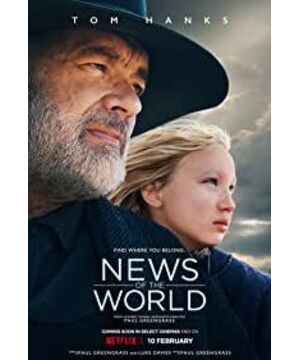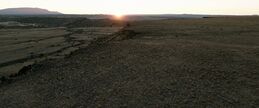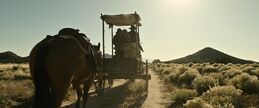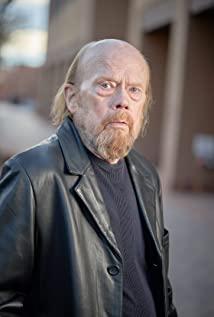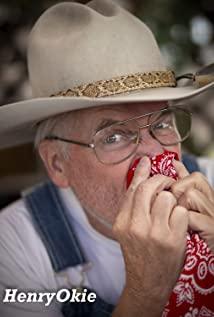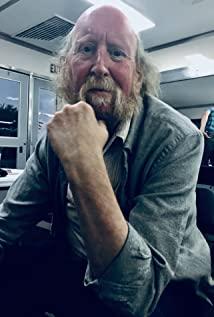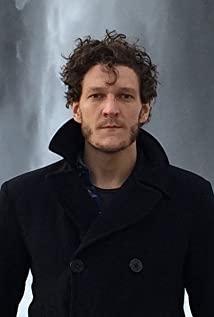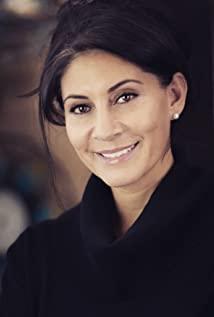This is the first movie starring Tom Hanks after recovering from new coronary pneumonia. According to the type of film, it can be regarded as a western dirt road film. Because the background of the film was set in 1870, not to mention highways in the United States at that time, there were no ordinary tarmac roads. It's about Captain Kidd, after he was discharged from the army, he found a job and read the news to big guys from village to village, and charged ten cents per person. It's a job that barely makes ends meet. During the trip to the village, he met a 10-year-old girl, Johanna, who had lost her family and gave it to the government. The government was busy rebuilding and expelling the Indians after the war. There was no time to control. He had to take Johanna for 400 miles to prepare. Taste the hardships and give it to her only surviving relative.
There is one detail, although it is not important, but the introduction of the film is very brief, which affects everyone's follow-up viewing. It's about Johanna's life experience. I also read it several times before I understood it slightly. Johanna's family are German immigrants. After settling down in Castroville, Texas, Johanna’s parents wanted to buy some cheap land, so they went to a barren land where birds don’t shit, built a few cabins, and started a business. Who would have thought that this was the ancestral home of the Indians, and the Indians who had long had feuds with the whites killed Joanna and her family, leaving only Joanna to live with their tribe. This is a matter of 1864. Six years later, Joanna had forgotten her mother tongue and became familiar with the Indian language and their living habits. At this time, the American coalition forces after the war began to pack up the Indians, established an Indian reservation, drove the group there, and found Joanna who had been looted. So a coachman was sent to take Joanna back to Castrowell's aunt's house. But I didn't expect to run into a group of racists on the way, but unfortunately the coachman was a black man. As a result, the black man was hanged and Joanna ran away until Kidd found out.
For Kidd, taking care of Joanna is not his job. He left it to the government and the government didn't care. I found a trusteeship class, but couldn't control her. And Kidd himself, as he said: "I don't know how to take care of children at all. He has neither the desire to care nor the patience." By this time, Kidd has actually fulfilled his social responsibility. After that, he can leave it alone. If this matter appears to us, it would be another cliché of "duty and affection". But in the end Kidd decided to take Joanna on the road. This decision is not as easy as giving up seats on a bus. He knew that the road ahead was rugged and sinister, but he did not hesitate to do it. What he did was a kind of moral responsibility. For him, this was not a sudden enthusiasm, but a consistent and natural behavior. The motivation comes from his profound moral cultivation.
Kidd's profession is reading journalism. This was also a very novel job in the United States at the time. Every time before reading the news, Kidd told everyone to stay away from trivial matters and keep their eyes open. He saw these "line by line" in the newspaper, and it became a story. He was telling stories to everyone. This is similar to the nature of the drum calligraphers who walked the streets and lanes in the early Qing Dynasty. The difference is that those drum calligraphers acted according to will, in order to teach and tame the people. In addition to working for Daoliang, Kidd is more important to let people accept modern civilization without knowing it. The people he faced were also different from the people who were numb at that time. These immigrants and the descendants of immigrants have been nurtured by civilization very early. What they need is to broaden their horizons and understand the world. Kidd himself is also receiving the baptism of modern civilization in the process of reading the news. He also has his own judgment and choice. To the old Tory ordering him to read the "news" about the torture and killing of Indians, he refused. And almost paid the price of his life for this.
In the United States in 1870, the dawn of civilization has illuminated this land. However, on the issue of race, this place is still in the age of ignorance (it is still the case to this day). The slogan "All men are created equal" only appeared in the Declaration of Independence. As said in the film, "the colonists killed the Indians in order to occupy the land, and the Indians killed the colonists in order to regain the land." Ordinary people naturally cannot see the cause of those grand incidents and crimes. All they feel are the details around them and their loved ones who have been killed. So it was decided that these red-haired gangsters were all savages. But for Johanna, who has lived among the Indians for many years, her enemies are those American coalition forces who drove them away. Refuse to enter the white world. It was not until she returned to her childhood cabin and saw the blood stains on the wall that she realized that the people who killed her parents and sister were the Indians who nurtured her. However, when Kidd and Johanna were at the end of their journey, they met the migrating Indian tribes, but generously gifted them horses. These feelings and grudges made Joanna puzzled. Kidd is actually the same. He had no choice but to persuade Joanna, but also tried to convince herself: "I want to take you away from pain and killing, let it pass by the past. Don't look back, look forward." At this time, Johanna said something intriguing in Indian. The words: "To move on, you must first remember."
I remember 50 years ago, I used to ridicule a song "Picking Mulberries". The last sentence is written like this: "A few wisps of hurt, no hurt, let me down." What I want to express here is the same emotion as Kidd. But isn't what Johanna said is equally sobering? The Jews will not forget the Auschwitz massacre by the Nazis, nor will the Palestinians forget that they were driven out of their homeland by the Israelis for generations. The people of Dallas will not forget the looting of the Indians and the murder of their relatives, and the Indians will also not forget the generosity of their benevolence to immigrants, but in return the ruthless slaughter of the so-called civilized white people. We can not entangle everything in the past, we can heal deep scars, we can forget the knife stabbed at a loved one, we can forget the appearance of the enemy, but what we want to explore is why there is such a catastrophe? Why do humans have such cruelty to each other? In the film, on the hanged carriage driver, there is a shameless declaration: "This is a white man's country!" Many Americans still think so today. And through various ways to show off the superiority of his own race. Relying on power and weapons to bully the "untouchables" they consider to be inferior. Therefore, history should always be remembered. Remember to never happen again, remember to move forward. Unfortunately, people are always forgetful.
Tom Hanks, who plays Kidd in the film, is always exhausted and recovering from a serious illness. Perhaps this is the character that the choreographer gives to the character? Helena Zeger, who played Johanna, performed very well. She didn't talk much, but her various emotions were fully expressed through her acting skills. Her eyes can speak. From her eyes, we can clearly see joy, sorrow, confusion, anger...
My score: 7.0.
View more about News of the World reviews


